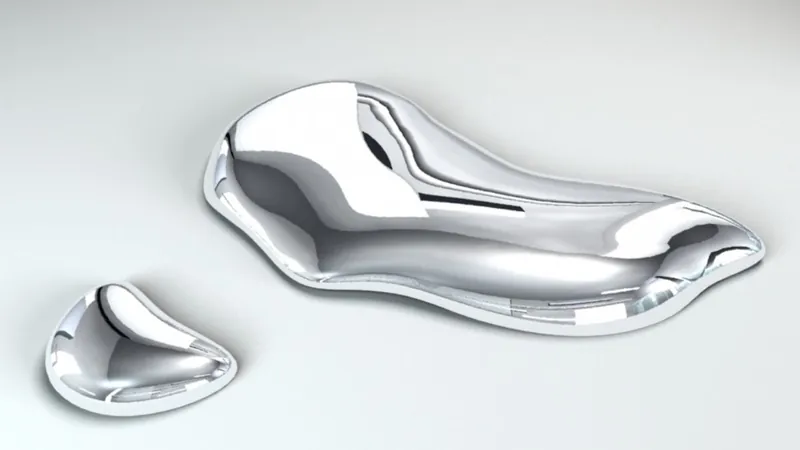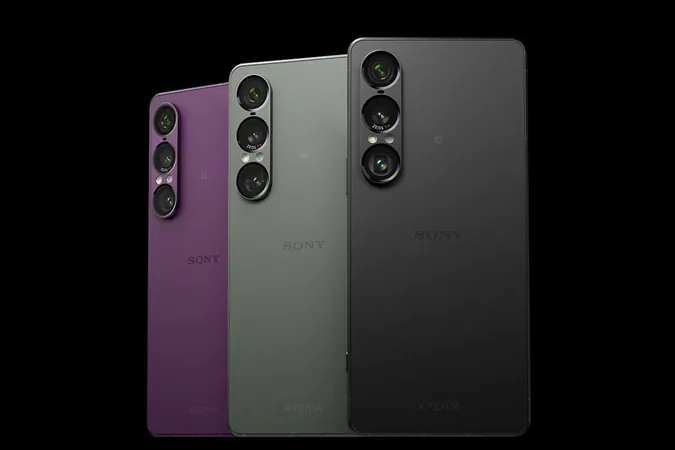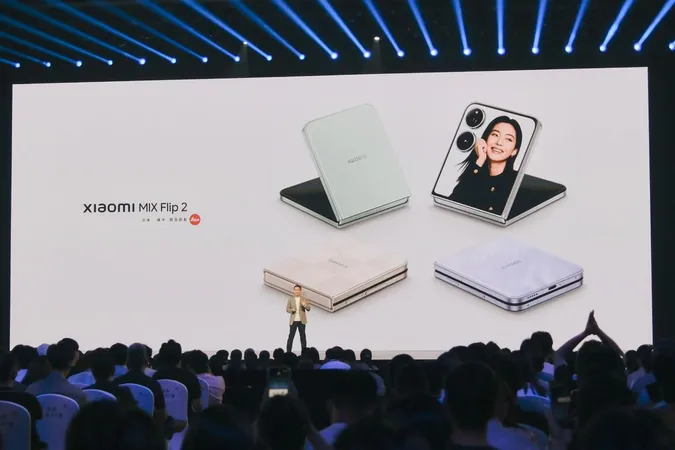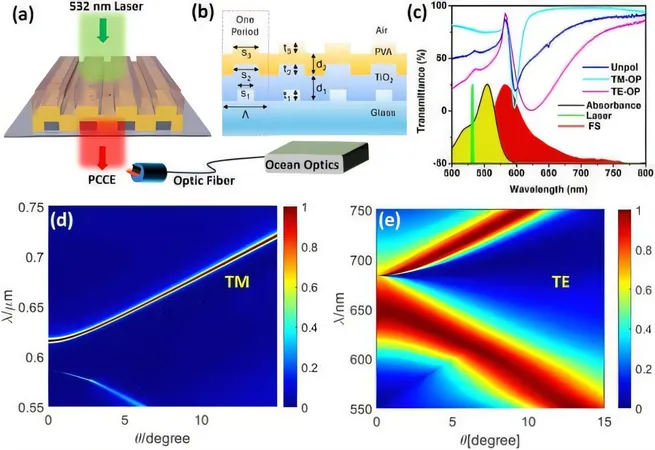
How 'Mercury' Revolutionized Puzzle Gaming on the PSP: Insider Insights from Jeb Mayers
2025-01-05
Author: Nur
As we celebrate the momentous 30th anniversary of the PlayStation and the 20th anniversary of the PlayStation Portable (PSP), it's time to reflect on the groundbreaking titles that defined the handheld gaming landscape. One of the standout launch titles for the PSP was *Archer Maclean's Mercury*, a game that cleverly combined puzzle mechanics with innovative gameplay, leaving a lasting impact on portable gaming.
Recently, Retro Gamer caught up with Jeb Mayers, the former head of Research and Development at Awesome Studios, who played a pivotal role in the creation of *Mercury*. His insights shed light on how this revolutionary game came to fruition.
The Spark of Innovation
Mayers joined Awesome Studios in April 2003, shortly before the PSP was announced. "I had just met Archer Maclean, who was extremely passionate about his work. We were brainstorming ideas, and he had a prototype for a game that involved controlling a shiny metallic blob — reminiscent of mercury — through a maze," he recalled. This early concept would soon evolve into a full-fledged PSP launch title.
When Sony unveiled the PSP at E3 in May 2003, Maclean immediately recognized the potential for a 'ball in a maze' game to translate perfectly to a portable format. The developers even explored the idea of incorporating a tilt sensor to control gameplay through device movement, although that feature ultimately didn't make it to market.
Collaboration with Sony
In November 2003, Awesome Studios became an official PSP developer, which allowed them to access Sony's software emulator. "While it was a robust tool, it didn’t match the speed and capabilities of the final hardware," Mayers explained. The first working development kits arrived in Europe mid-2004, but the fragile devices faced setbacks, leaving the team with limited resources and time.
Despite the challenges, by July 6, 2004, *Mercury* became the first title fully operational on the PSP hardware outside Japan—a major milestone for the team. "Sony sought our feedback and used *Mercury* in their tech demos for publishers," Mayers added, highlighting the collaboration’s mutual benefit.
What Set *Mercury* Apart?
While *Mercury* was part of a competitive launch lineup that included titles like *Lumines*, known for its addictive gameplay, Mayers believes its originality was key to its appeal. "It didn’t follow the classic formula of racing games or fighting games. What *Mercury* introduced was genuinely new and engaging," he affirmed.
The vibrant colors, challenging levels, and seamless controls remained memorable for players, making *Mercury* a defining example of how puzzle games could thrive on portable systems.
Legacy of Innovation
Looking beyond its launch, *Mercury* has paved the way for other puzzle-infused experiences on portable gaming platforms. Its unique style and innovative mechanics have influenced subsequent puzzle games, proving to be a vital piece of gaming history.
In conclusion, as we look back on two decades since the advent of the PSP and the classic title *Mercury*, we are reminded of how innovation, creativity, and collaboration can create something remarkable in the gaming world. Fans remember the game not just for its unique experience, but as a cornerstone of portable gaming, setting a precedent for future titles to follow. The journey of *Mercury* illustrates that when developers and tech creators work together, the result can reshape an entire genre!





 Brasil (PT)
Brasil (PT)
 Canada (EN)
Canada (EN)
 Chile (ES)
Chile (ES)
 Česko (CS)
Česko (CS)
 대한민국 (KO)
대한민국 (KO)
 España (ES)
España (ES)
 France (FR)
France (FR)
 Hong Kong (EN)
Hong Kong (EN)
 Italia (IT)
Italia (IT)
 日本 (JA)
日本 (JA)
 Magyarország (HU)
Magyarország (HU)
 Norge (NO)
Norge (NO)
 Polska (PL)
Polska (PL)
 Schweiz (DE)
Schweiz (DE)
 Singapore (EN)
Singapore (EN)
 Sverige (SV)
Sverige (SV)
 Suomi (FI)
Suomi (FI)
 Türkiye (TR)
Türkiye (TR)
 الإمارات العربية المتحدة (AR)
الإمارات العربية المتحدة (AR)